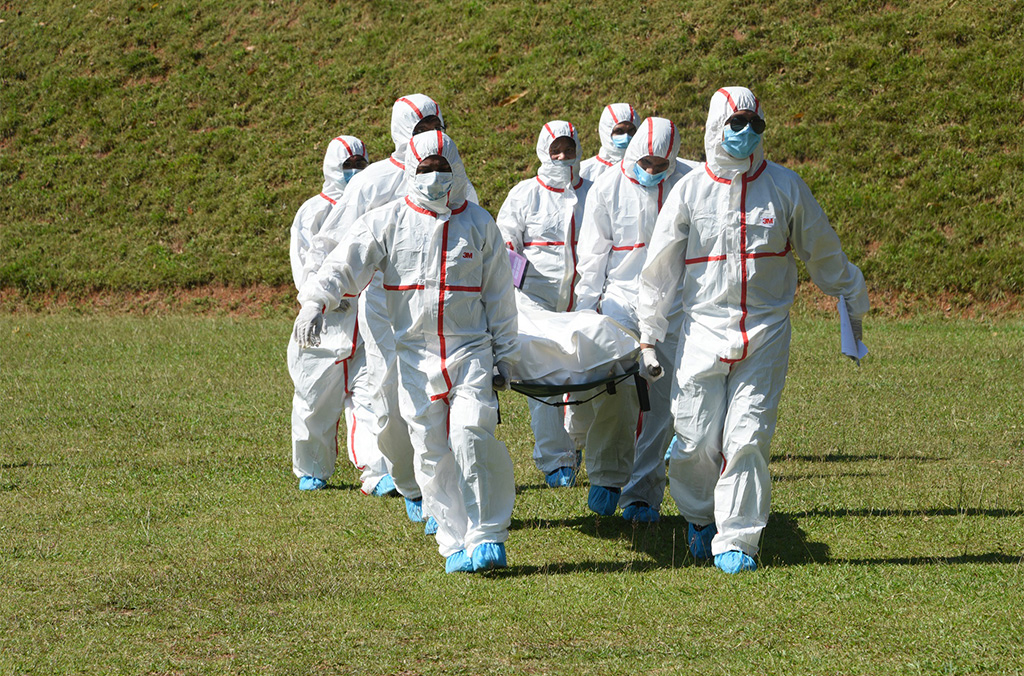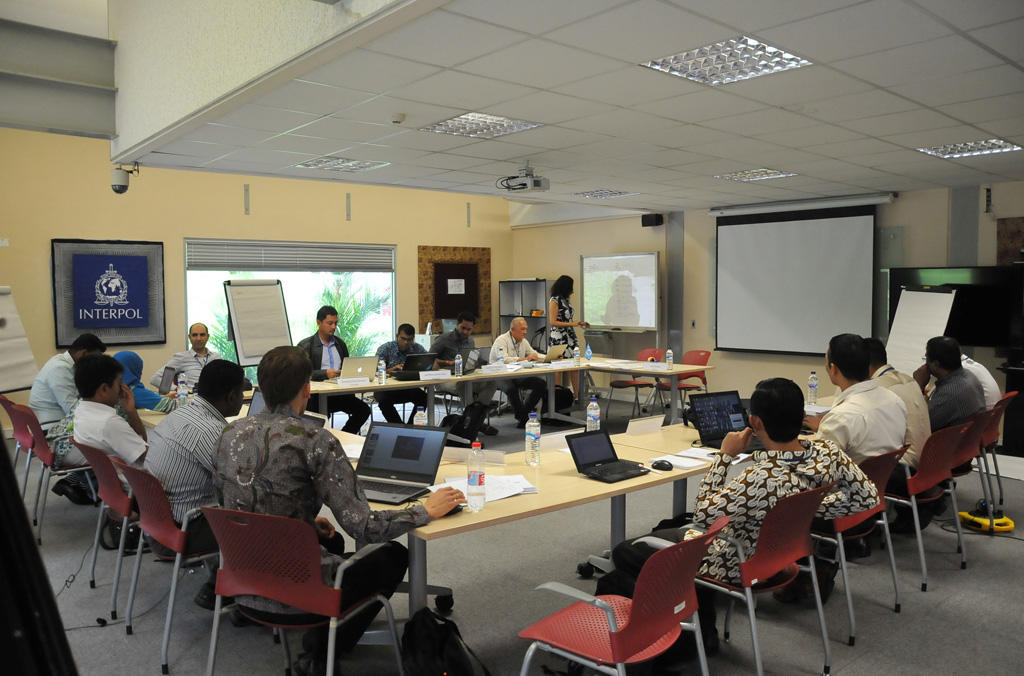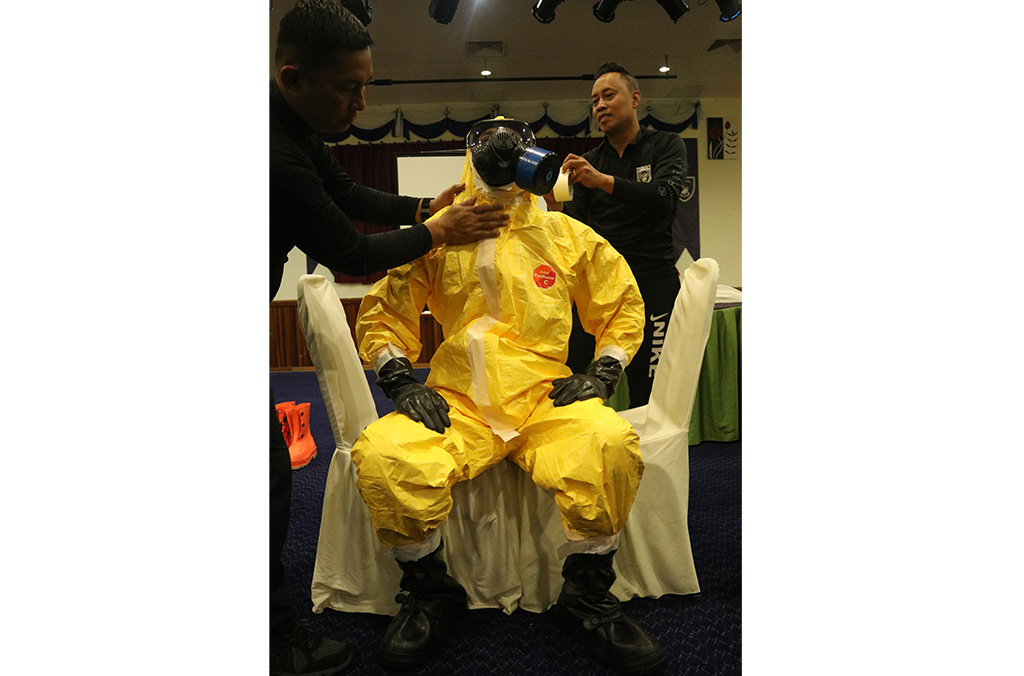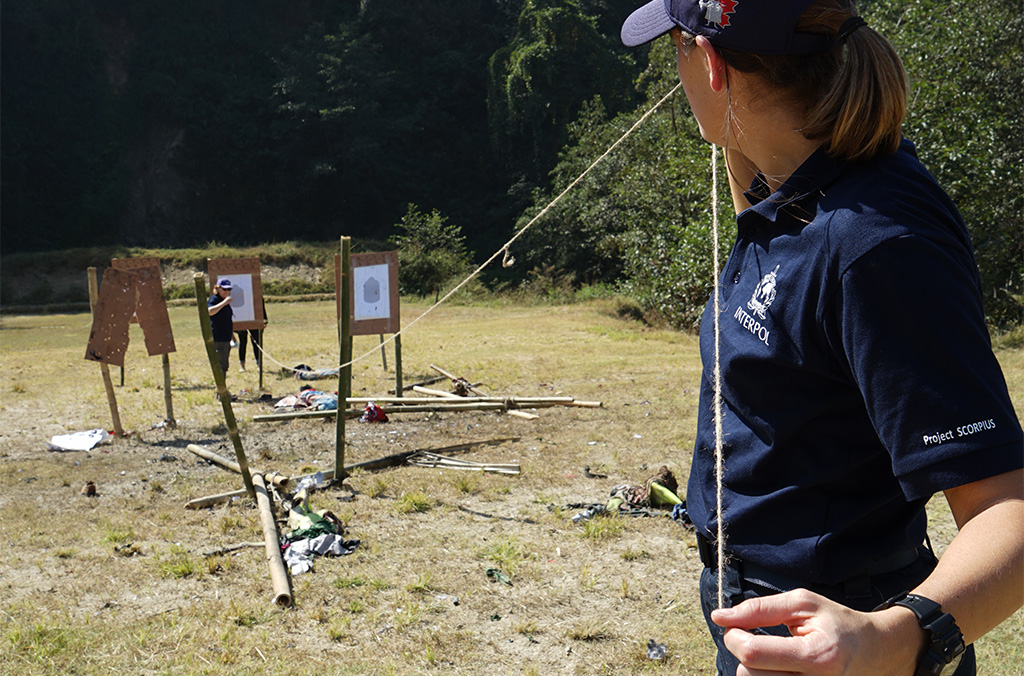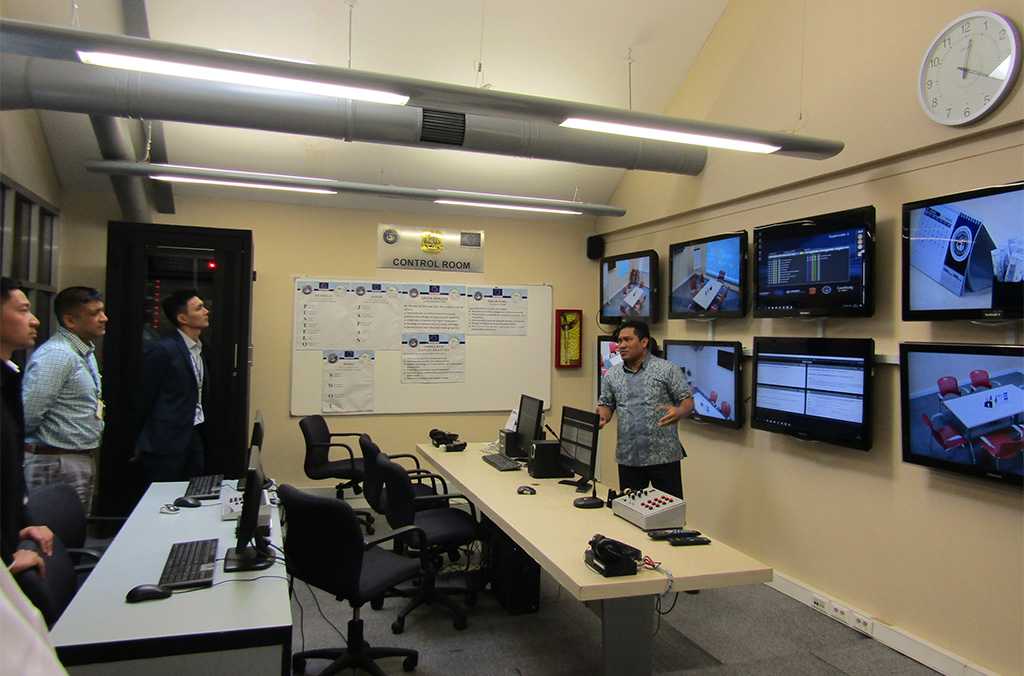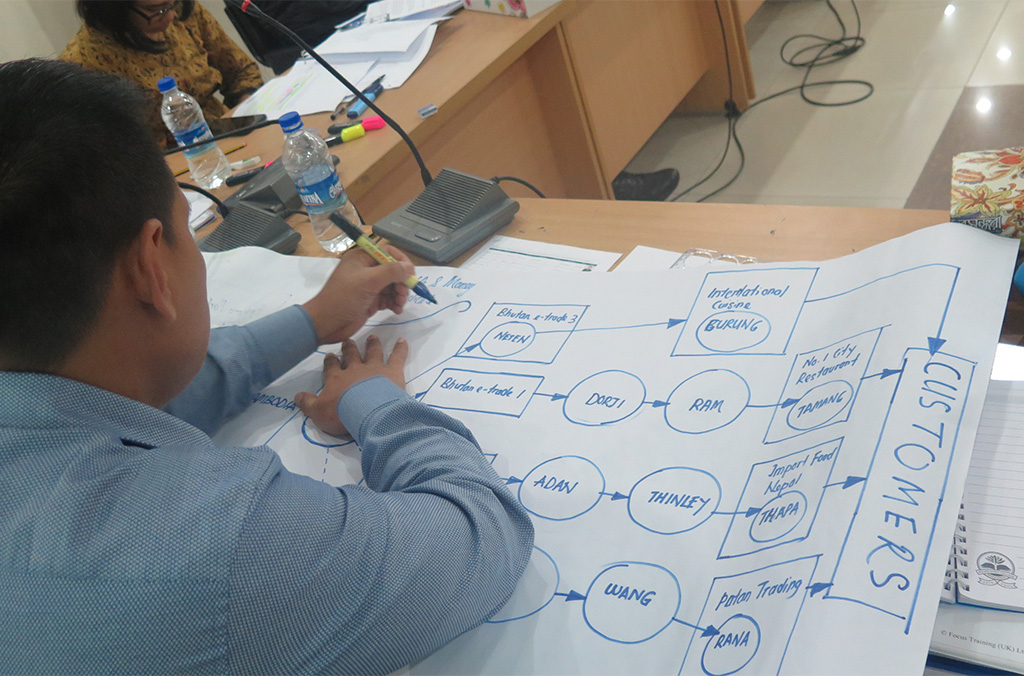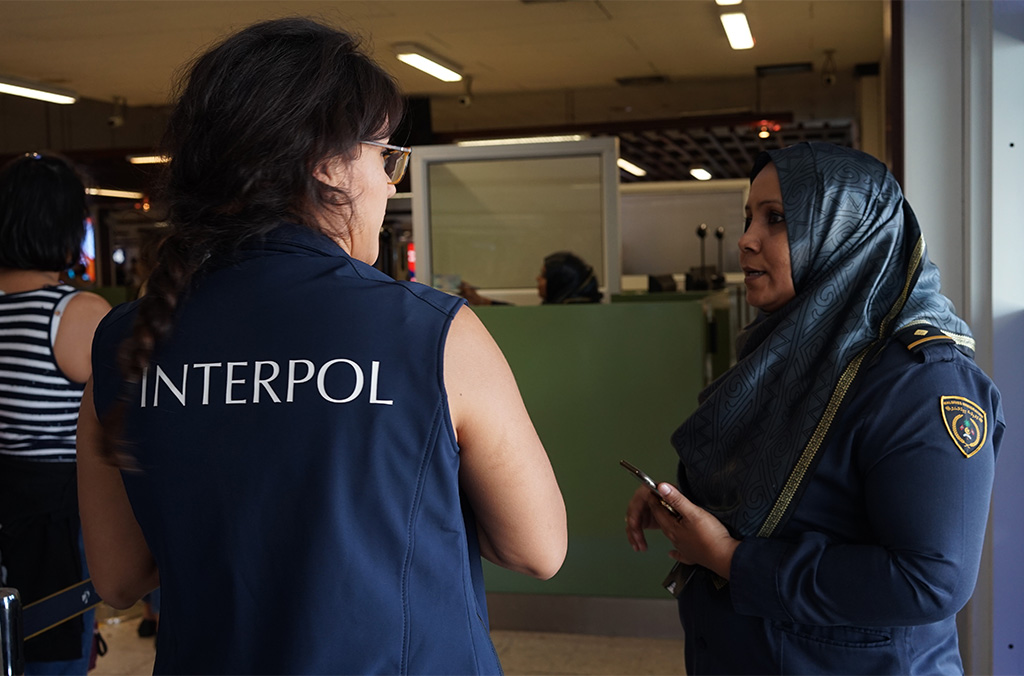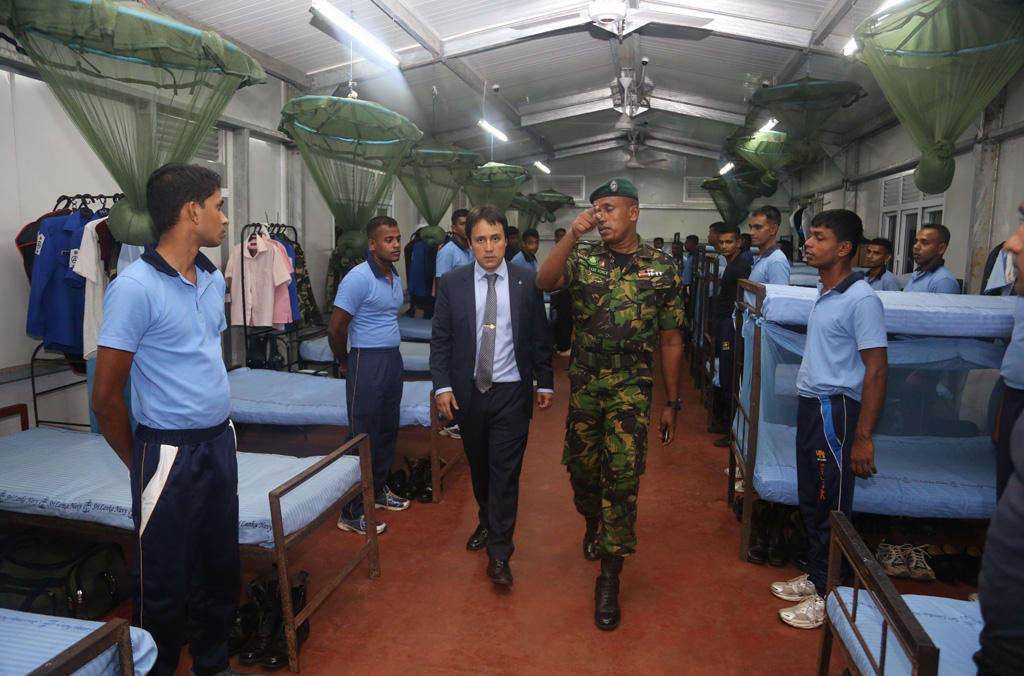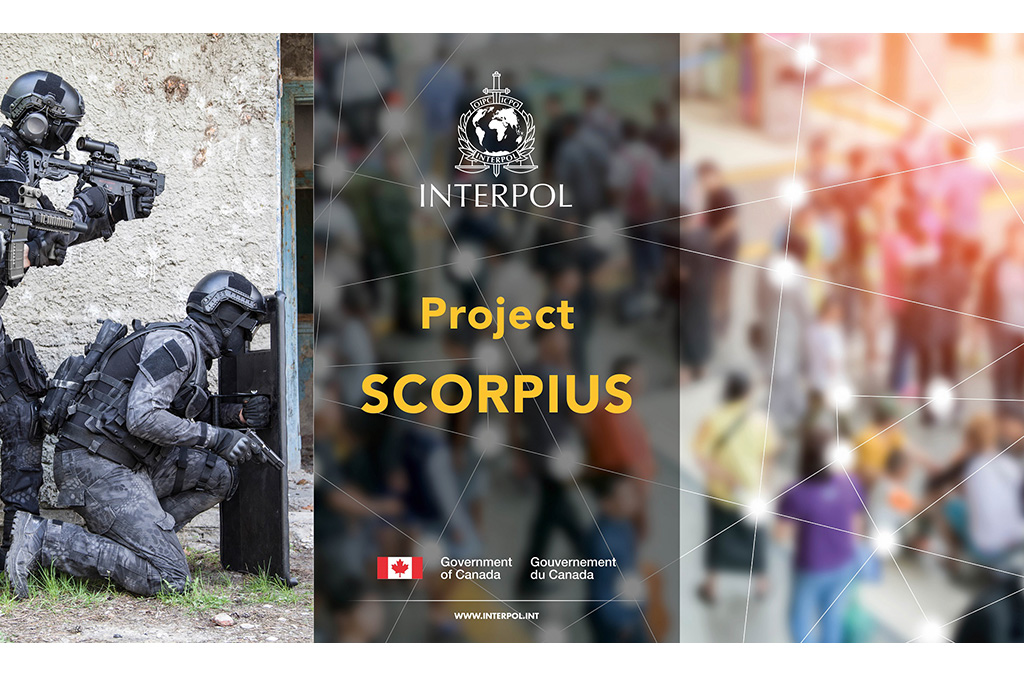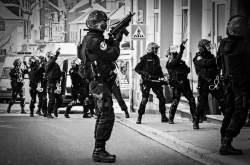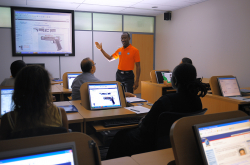Project Scorpius was a two-year (2017-2019) capacity building initiative for law enforcement agencies in South and Southeast Asia aimed at preventing and disrupting terrorism and related transnational crime. It was jointly funded by INTERPOL and the Government of Canada.
Adopting a holistic approach, the project brought together relevant actors across the law enforcement community, including key decision makers, counter-terrorism and transnational crime investigators, intelligence officers, officers from INTERPOL National Central Bureaus (NCBs), criminal justice agencies, prosecutors and police training institutions.
Supporting our global counter-terrorism strategy, the project focused on the following beneficiary countries: Bangladesh, India, Indonesia, Malaysia, Maldives, Nepal, Pakistan, Philippines, Sri Lanka and Timor Leste.
Identifying the needs
The project began with an assessment of the challenges the countries encounter in their daily police work and how best INTERPOL can assist them in the future.
Through a combination of questionnaires and assessment visits, Project Scorpius identified the key areas where INTERPOL could provide the most relevant support to each beneficiary country. This allowed the project to develop tailored capacity building interventions focusing on the real needs of police and judicial authorities on the ground.
Investigative skills
Investigative workshops provide the practical skills required to prevent, detect and investigate criminal and terrorist activities, enhancing the capability of countries to:
- Identify suspected transnational criminal networks and their affiliates;
- Coordinate between relevant law enforcement agencies, nationally and internationally;
- Systematically include biometrics linked to terrorist profiles in INTERPOL databases and alerts;
- Identify, track and intercept the illicit trafficking of weapons and materials;
- Share intelligence on subjects and modus operandi linked to CBRNE and IED incidents.
Training courses focused on different areas of need identified during the assessment phase, including:
- Open source and social media investigations – relevant and sustainable techniques to prevent and combat terrorism through investigations using open source intelligence and social media platforms. Participants also learned about privacy, human rights, and freedom of expression during counter-terrorism and related transnational crime investigations.
- CBRNE weapons and materials – to facilitate intelligence sharing amongst member countries on Weapons of Mass Destruction (WMD) and Improvised Explosive Devices (IED), particularly between military and law enforcement. The session also aimed to enhance countries’ capability to respond to terrorist threats and incidents caused by Chemical Biological Radiological and Nuclear and explosive (CBRNE) materials.
- Crime scene investigation and disaster victim identification (DVI) – bomb scene examination, DVI methods and general crime scene investigation, within a counter-terrorism context. Participants learned to effectively respond to such events and secure vital evidence to support prosecutions of those who carry out acts of terrorism.
- Firearms – how to analyse the intelligence which can be obtained from a weapon, or a firearm incident, as well as to identify the networks involved in the illegal movement of firearms.
Analytical skills
Analytical workshops provide the practical skills required for officers to effectively analyze criminal and terrorist activities, so they can:
- Understand the concepts and components of the intelligence process;
- Produce analytical assessments, reports and briefings;
- Understand and apply the concepts, techniques and tools of open source and social media investigations;
- Gain practical exposure to analyse cases of terrorist financing.
A criminal intelligence analysis training course hosted by the Bangladesh Police Force in 2018 brought together more than 20 counter-terrorism and intelligence officials from nine countries. It looked at the methodologies for the prevention, detection and investigation of terrorism and related transnational crime.
Another course held in Japan in 2019 with the support of the Internet Corporation for Assigned Names and Numbers (ICANN) focused on conducting online investigations into terrorism and transnational crime, where officers from the beneficiary countries learned how to identify online abuse of the Domain Name System (DNS), and malicious registrations of domain names, addresses or hosting.
Involving all stakeholders
Involving prosecutors in its activities was a key objective of Project Scorpius, to ensure that the judicial systems in the beneficiary countries were also equipped with the knowledge and skills to counter terrorism and transnational crime. Prosecutors were consulted alongside law enforcement agencies during the needs assessment phase, and several training courses were developed especially for their benefit, including a mock court preparatory meeting and a course on the application of INTERPOL’s policing capabilities to counter-terrorism investigations.
To expand the participant pool for training activities and encourage more prosecutors and judicial authorities to take part, Project Scorpius put particular emphasis on online distance learning.
INTERPOL’s first fully online training course, the INTERPOL E-Evidence Boot Camp, was developed as part of the project. The course provided an introduction to digital investigations and forensics to help law enforcement officers, judges and prosecutors understand digital evidence and how it can be used in prosecutions.
Additionally, our first webinar, conducted in December 2017 in collaboration between the INTERPOL Global Learning Centre and Simon Fraser University in Canada, examined ‘Countering violent extremism’.
The importance of respecting human rights in all law enforcement and judicial actions also received significant focus during Project Scorpius. Human rights considerations were taken into account when planning and designing during the planning of all activities, and an online e-learning course on human rights considerations for law enforcement will be made available for all member countries in 2020.
Partnering with police academies
National police academies offer a ready-built infrastructure and networks of expertise for supporting police training activities, which is why we involved them during every step of the project. Their views were sought during the needs assessment, and training courses were held at police academies whenever possible to invest in the facilities of our member countries’ police.
We also brought together the heads of police academies in the Association of Southeast Asian Nations (ASEAN) and South Asian Association for Regional Cooperation (SAARC) countries to discuss increased collaboration and the implementation of new training efforts on counter-terrorism and cybercrime.





